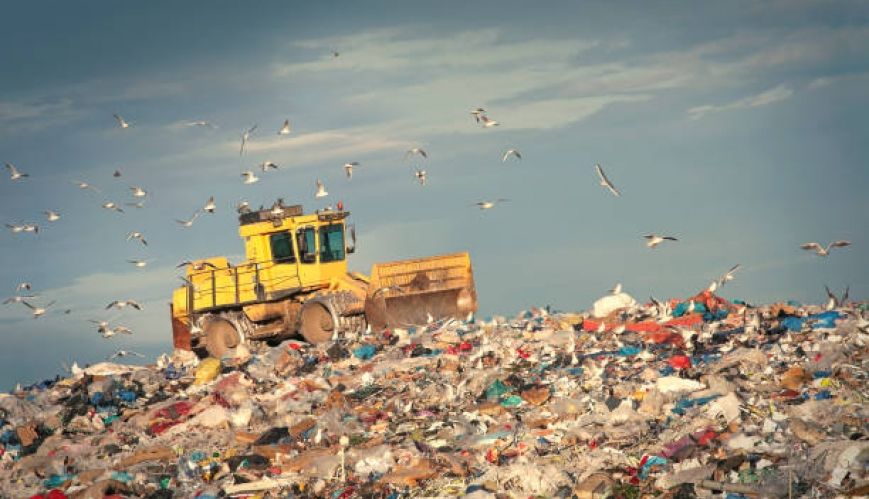The Salvaging Army

The Salvaging Army
31 May 2021
Garbage in, garbage out: how can we take care of the world we all share?
For much of human history, recycling has been more through necessity rather than aiming to be environmentally friendly or ‘green’. For many people around the world, necessity is still the primary reason for recycling.

In Australia, even during the 20th century, economic depression and wars provided significant reasons to ‘reduce, reuse and recycle’. It has only been in more recent history that factors such as economic prosperity and planned obsolescence (where items are not designed for long-term use) have removed the apparent need for frugality and recycling. Sadly, this increase in buying lots of ‘stuff’, combined with reduced levels of responsible stewardship of the resources provided to us, has created large amounts of wasted food, materials and energy. This in turn has increased pollution levels and has had many negative impacts on the earth that we all live within.
Humanity’s impacts on the earth
Throughout human history, people have impacted the earth in many different ways. Yet, it appears that humanity’s impacts have, and are, continuing to increase significantly. There have been considerable losses in biodiversity caused by human activities such as habitat destruction, deforestation, desertification and introducing non-native invasive species. There have been decreases in air, water and soil quality and there have also been increases in light and noise pollution. Extensive chemical and nuclear contamination has occurred both in times of war and peace. Other alarming, human-caused environmental issues include the existence of ‘garbage patches’ within all major oceans and the fact that newborn babies can already test positive for harmful chemicals and carcinogens. It is in this context that recycling has taken on new importance for many, including the Salvos.
The Salvaging Army
Recycling has actually been a part of the Salvos since the early days of the movement. The founders of The Salvation Army, William and Catherine Booth, saw the need for employment and affordable goods, and were concerned about disease, the amount of waste and its impact on the land. One way in which they aimed to bring healing and hope was through ‘Household Salvage Brigades’. These recycling brigades were to go from house to house to collect unwanted items that had the potential to be reused.
The recycling centres, otherwise known as thrift shops, family stores or Salvos Stores in Australia, can trace their history back to the 1880s. The ‘Prison Gate Brigade’ in Melbourne began a salvaging program to provide work for those who had been released from prison and to provide funds to keep the program financially viable. This was the beginning of Salvos recycling goods in order to help renew and rejuvenate hearts, minds and lives.
The emphases of Salvation Army recycling programs were, and still are, to provide work for those who are currently unemployed, provide cheaper goods, and generate funds with which to financially support the work of the Salvos to bring hope to people. However, the environmental benefits of the significant amount of recycling that takes place in Salvation Army thrift shops worldwide is considerable and inspiring. For example, in 2016, Salvos Stores alone diverted 30,000 tonnes of donated items from landfill. Thrift shops are increasingly seen as a great way to respond to the social and environmental challenges that we face today in caring for the health and wellbeing of God’s earth.
Biblical and natural principles
There are excellent principles within the Bible that can help remind us to look after what we have. For example, there is a helpful emphasis on the links between living God-centred lives in community and living in safety and abundance in the land (Leviticus chapter 25, verses 17-19). There is a great recommendation in Deuteronomy chapter 20, verses 19-20 to “not waste or destroy”, which can help remind us to use only as much of a resource as we need, and don’t needlessly destroy any resources we have been given. Substantial issues and problems arise in the biblical stories when people ignore or do not consider their connection with God, with other people, and with the land. This fact is still of great significance to us today.
Richard Daake and Darek Jarmola note that the story of Jesus feeding five thousand people in John chapter 6, verse 12, fits in with these principles and gives us insights, such as: God is not wasteful; God expects us to be prudent and frugal in our use of resources; wasteful use of resources is contrary to a biblical way of life; all resources are precious, not to be thrown away without thought for tomorrow or for the needs of others; and we are to handle excess resources wisely and carefully, even if they are waste.
One final thought is that recycling is also a fundamental part of the conditions on earth that we live within, where trees, plants, living creatures and humanity all are nourished by and, in the end, return, to the natural cycles on the earth.
There are so many great reasons to recycle and reuse – it’s natural, smart, helpful and biblical!
With World Environment Day, biblical principles and Salvo aims in mind, it’s a great time to consider how we can all more effectively reduce, reuse and recycle the resources that God has blessed us with in order to reduce our impact on the earth.
For useful information to assist recycling more effectively in your local area, you can check out the ‘Recycling Near You’ website: http://www.recyclingnearyou.com.au/